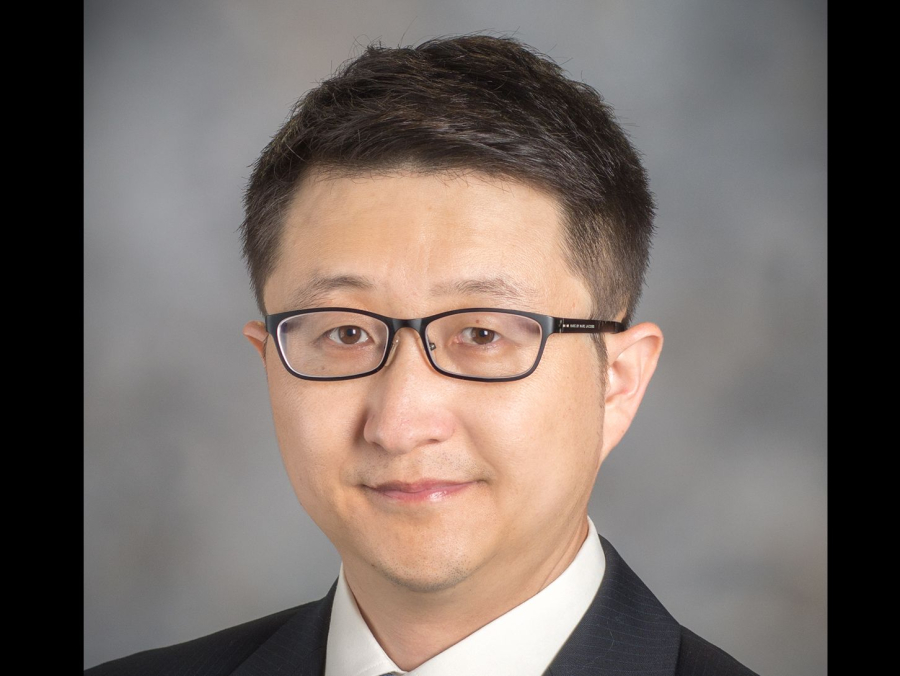When Wenhua Cao first arrived at the University of Houston to start his doctoral work in the Industrial Engineering Department, he wasn’t new to just the school — It was his first time spending significant time in the United States as well.
“The initial experience was overwhelming. But if I reflect on how I felt about the atmosphere at UH then, two words come to my mind — vibrant and welcoming,” he said. “Thanks to that, I think I adjusted very quickly to this new life and became comfortable with it.”
Cao arrived in 2007, and completed his doctorate in 2012. While he came to UH partially because of a robust scholarship package and the available research topics to him, the size of the metro area also attracted him to the school.
“I always wanted to go to university in a large city. Houston has an extremely diverse population, which I really preferred. I think it is big plus for many international students like me,” he said. “I also thought about the ample potential job opportunities after I obtained my degree in Houston. I am very happy I made the right choice. Since moving from my home country to the U.S. for graduate school in 2007, then immediately starting work, I have been in Houston. I really enjoy living here.”
He is now an associate professor in the Department of Radiation Physics, a Division of Radiation Oncology at the University of Texas MD Anderson Cancer Center. He joined MD Anderson as an assistant professor in 2016.
“I had so many memorable moments with UH,” he said. “Watching my first football game at Robertson Stadium. Practicing for my driving test at parking lots and streets around the campus. Going through Hurricane Ike without electricity on the campus and apartment for days. Studying hard together with classmates on exams and projects when trying to take as many as possible classes in the first year. Discussing research with a former senior lab mate in the empty engineering building during weekends and holidays. He had graduated and was working for a company, but he was willing to come back and meet with me often.”
He added, “There are countless precious memories. I always feel fortunate that I could be a part of the University of Houston.”
Cao’s advisor was Gino J. Lim, professor and R. Larry and Gerlene (Gerri) R. Snider Endowed Chairman of the Industrial Engineering Department. While at UH, the two earned a substantial research grant for nearly $880,000, and Cao said that Lim was a significant, positive influence on him.
“He was instrumental in my growth on many different fronts,” Cao said. “He introduced me to the field of radiation therapy and health care industry, where I eventually developed my career. He supported me overcoming various obstacles and difficulties throughout my academic and personal life as a Ph.D. student. He set an example of how to excel being an independent researcher and leading others. After I left UH, he became a research collaborator and a friend to me. I still interact with him frequently.”
Beyond Lim, Cao said he couldn’t have completed his doctorate without the support of others.
“I want to offer my special thanks to other faculty members, staff, lab mates and classmates from the department and college,” he said. “They all helped in one way or another. Finishing a Ph.D. is never easy. And it is not just hard work on your own. You really need a lot of support from people around you. I feel very grateful to everyone who I met and helped me during my time at UH. The positive experience at UH played an important role in motivating me to make my career in academia.”
The MD Anderson Cancer Center is a nationally-recognized leader in care and research, ranking as #1 for the past nine years, and as either #1 or #2 every year dating back to 1990, when U.S. News & World Report first started its survey. Cao said he is proud to be part of the faculty there.
“My primary job is research, and I also help the clinic develop radiation therapy treatment plans for patients,” he said. “The central goal of my research is to make radiation therapy treatments more effective and efficient, and most importantly, safer to the patients, using novel mathematical optimization and artificial intelligence techniques. In other words, using computer programs to instruct radiation machines to deliver radiation to the right location in patient body in right amount at the right moment.”
“In research, we constantly challenge ourselves to better understand where is the right location, what is the right amount, and when is the right moment. At the same time, we need to figure out robust software and hardware systems to achieve those. The perk of my work is if your research is great, it can be used in the clinic quickly and help lots of patients.”
Cao has published regularly at MD Anderson, and he is listed as an author for four articles alone in 2023.
